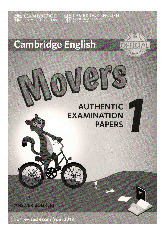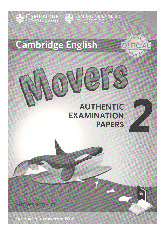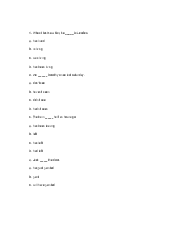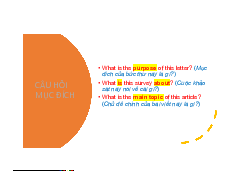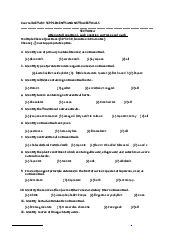

Preview text:
Unit
both / both of neither / neither of 89 either / either of
We use both/neither/either for two things. A
You can use these words with a noun (both books, neither book etc.).
For example, you are going out to eat. There are two possible restaurants. You say:
Both restaurants are good. (not the both restaurants)
Neither restaurant is expensive.
We can go to either restaurant. I don’t mind. (= one or the other, it doesn’t matter which)
I haven’t been to either restaurant before. (= not one or the other)
You can also use both/neither/either without a noun:
‘Which do you prefer, basketball or tennis?’ ‘It’s hard to say. I like both.’
‘Is your friend British or American?’ ‘Neither. She’s Australian.’
‘Do you want tea or coee?’ ‘Either. I don’t mind.’
both of … / neither of … / either of … B
We use both of / neither of / either of + the/these/my/Tom’s … etc. So we say ‘both of the
restaurants’, ‘both of those restaurants’ etc. (but not both of restaurants):
Both of these restaurants are good.
Neither of the restaurants we went to was expensive.
I haven’t been to either of those restaurants.
You don’t need of aer both. So you can say:
Both of these restaurants are good. or Both these restaurants are good.
We also use both of / neither of / either of + us/you/them:
(talking to two people) Can either of you speak Russian?
I asked two people how to get to the station, but neither of them knew.
We say ‘both of’ before us/you/them (you need to use of):
Both of us were tired. (not Both us were …)
Aer neither of … a verb can be singular or plural:
Neither of them is at home. or Neither of them are at home. You can say: C both … and … Both Chris and Paul were late.
I was both tired and hungry when I arrived home. neither … nor …
Neither Chris nor Paul came to the party.
There was an accident outside our house, but we neither saw nor heard anything. either … or …
I’m not sure where Maria’s from. She’s either Spanish or Italian.
Either you apologise, or I’l never speak to you again.
Compare either/neither/both (two things) and any/none/all (more than two): D
There are two good hotels here.
There are many good hotels here.
You could stay at either of them. You could stay at any of them. We tried two hotels. We tried a lot of hotels.
⎧ Neither of them had a room. ⎧ None of them had a room. ⎨ ⎨ ⎩ Both of them were full. ⎩ All of them were full.
neither do I / I don’t either ➜ Unit 51C any ➜ Units 85–86 none ➜ Units 86A, 88 all ➜ Unit 88 178
both of whom / neither of which ➜ ➜ Unit 96B both Unit 110D Unit Exercises 89
89.1 Complete the sentences with both/neither/either.
1 ‘Do you want tea or coee?’ ‘ Either . I really don’t mind.’
2 ‘What day is it today – the 18th or the 19th?’ ‘ . It’s the 20th.’
3 : Where did you go on your trip – Korea or Japan? : We went to
. A week in Korea and a week in Japan.
4 ‘Shall we sit in the corner or by the window?’ ‘ . I don’t mind.’
5 ‘Where’s Lisa? Is she at work or at home?’ ‘ . She’s away on holiday.’
6 ‘Is it true that Kate speaks Spanish and Arabic?’ ‘Yes, she speaks fluently.’
89.2 Complete the sentences with both/neither/either. Use of where necessary. 1
Both my parents are from Egypt.
2 To get to the town centre, you can walk along the river or you can go along the road. You can go way.
3 I went to Carl’s house twice, but times he wasn’t at home. 4
Tom’s parents is English. His father is Polish and his mother is Italian.
5 I saw an accident this morning. One car drove into the back of another. Fortunately driver was injured, but cars were badly damaged.
6 I have two sisters and a brother. My brother is working, but my sisters are still at school.
89.3 Complete the sentences with both/neither/either + of us / of them.
1 I asked two people how to get to the station, but neither of them knew.
2 I was invited to two parties last week, but I couldn’t go to .
3 There were two windows in the room. It was very warm, so I opened .
4 Sam and I oen play tennis, but we’re not very good. can play well.
5 I tried two bookshops for the book I wanted to buy, but had it.
89.4 Write sentences with both … and … / neither … nor … / either … or … .
1 Chris was late. So was Pat. Both Chris and Pat were late.
2 He didn’t say hello, and he didn’t smile. He neither said hello nor smiled.
3 It was a boring movie. It was long too. The movie
4 Joe doesn’t have a car. Sam doesn’t have one either.
5 Emily speaks German and she speaks Russian too.
6 Ben doesn’t watch TV and he doesn’t read newspapers. Ben
7 Is that man’s name Richard? Or is it Robert? It’s one of the two. That man’s name
8 I don’t have time to go on holiday. And I don’t have the money. I have
9 We can leave today or we can leave tomorrow – whichever you prefer. We
89.5 Complete the sentences with neither/either/none/any.
1 We tried a lot of hotels, but none of them had a room.
2 Sam has two sisters, but I haven’t met of them.
3 Emily has four brothers, but I haven’t met of them.
4 There were a few shops in the street, but of them was open.
5 Spain, Italy, Greece, Turkey – have you been to of these countries?
6 I could meet you next Monday or Thursday. Would of those days suit you?
7 Mark and I couldn’t get into the house because of us had a key. 179
